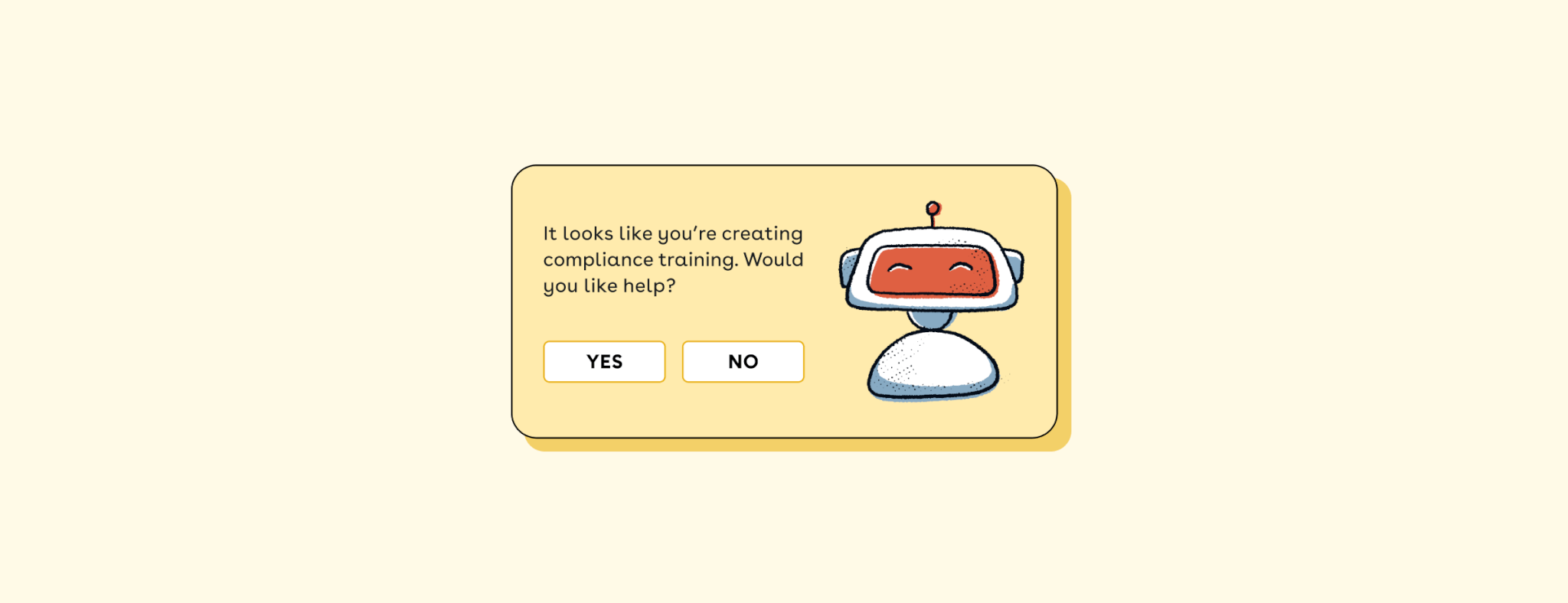Effective interviews are a cornerstone of the hiring process. They help us determine whether or not a candidate has the right skills, experience, and personality for the job. Without thoughtfully-curated questions, interviews can get off-track, making it harder to compare candidates and make fair decisions. That’s when bad hires happen — and no one wants to waste time and money on that!
At Ethena, we believe that the best interview questions focus on what really matters for the role, like specific skills, past experiences, and how someone approaches challenges. When we get that part right, it becomes more than filling a position — it’s about finding someone who’s going to thrive in the role and add something valuable to the team.
Here are 18 of my favorite questions to help set you up for success.
1. Tell me about a time you felt undervalued at work.
Supporting questions: What led to this, and how did you navigate the situation?
Why it works: This question uncovers how candidates perceive value and recognition in the workplace. It also highlights their resilience and communication style: do they advocate for themselves, seek feedback, or shut down? Their response can give insights into whether they’re likely to stay engaged in challenging environments or require constant external validation.
2. How do you define work-life balance?
Why it works: Work-life balance means different things to different people. This question helps determine whether the candidate’s expectations align with the demands of the role and the company culture. It also reflects their self-awareness about boundaries and priorities, showing whether they can manage stress effectively and sustain long-term productivity.
3. Tell me about a work situation that brought out the worst in you.
Supporting questions: Why did it bring out the worst in you? What did you learn?
Why it works: This question tests the candidate’s ability to be honest and self-aware about their flaws. How they handle such moments reveals emotional intelligence (EQ), accountability, and whether they’ve grown from past experiences. It also provides a sense of how they might behave under pressure or in difficult situations.
4. Tell me about a time you realized something could be better.
Supporting questions: Who did you tell, and what action did you take to be part of the solution?
Why it works: This question gauges a candidate’s proactive problem-solving abilities. It reveals their willingness to take ownership, collaborate, and improve the workplace rather than just identify issues. Their answer shows their initiative, critical thinking, and approach to change management.
5. Tell me about a time you took yourself too seriously.
Supporting questions: When did you realize this, what drove your behavior at the time, and what would you do differently if you could go back in time?
Why it works: This question examines humility and self-awareness, which are critical for team dynamics. A candidate who can recognize when they were rigid or overly critical and learn from it demonstrates maturity and adaptability — important traits for working in fast-changing environments.
6. Tell me about a time you were responsible for a decision, and someone disagreed with you.
Why it works: Conflict is inevitable in decision-making. This question reveals how candidates handle dissent and whether they balance decisiveness with openness to feedback. A strong response will showcase their ability to lead while maintaining respect for differing perspectives.
7. Tell me about a time you disagreed with a company decision.
Why it works: This question digs into how candidates handle situations where they disagree with authority or direction. Their answer provides insight into their ability to navigate complex organizational dynamics, stay professional, and balance personal values with organizational goals.
8. How do you respond when your direct report makes a call you disagree with? Give an example.
Why it works: For leadership roles, this evaluates trust in team members and the ability to delegate effectively. A strong candidate will demonstrate how they balance coaching, constructive feedback, and empowering others to make decisions, even if they don’t align with their initial viewpoint.
9. What’s the most difficult piece of feedback you’ve ever received?
Supporting questions: Why was it difficult for you to receive? How did you respond?
Why it works: This explores vulnerability and openness to growth. A candidate who can reflect on difficult feedback and articulate how they grew from it likely has strong emotional resilience and a growth mindset—both essential for thriving in demanding roles.
10. Tell me about a time you received feedback poorly.
Supporting questions: What caused you to receive it poorly, and what follow-up actions did you take, if any?
Why it works: Everyone struggles with feedback at some point. This question tests the candidate’s self-awareness, humility, and commitment to improving relationships and performance after a misstep.
11. What’s the most difficult piece of feedback you’ve ever given?
Supporting questions: How’d you deliver it? Why?
Why it works: Giving tough feedback is a key skill in leadership and collaboration. This question evaluates their communication style, empathy, and ability to address uncomfortable situations constructively. Their approach to delivering feedback reflects their level of emotional intelligence.
12. What’s a piece of feedback you should have given, but didn’t?
Supporting questions: Why did you sit on the feedback? Would you handle this differently today?
Why it works: It highlights the candidate’s accountability and growth. This question reveals whether they’ve learned from moments of inaction and how they handle tough interpersonal dynamics. A thoughtful answer will show a willingness to correct past mistakes.
13. Describe a time you struggled with conflict at work.
Supporting questions: What was the context, and how did you navigate the situation?
Why it works: Conflict management is a critical workplace skill. This question allows you to see how candidates navigate difficult situations while maintaining professionalism, collaboration, and productivity. It also reveals their communication and problem-solving style.
14. Describe a time when you had to learn something quickly to solve a problem.
Why it works: This question assesses adaptability and resourcefulness. Candidates who can quickly acquire new knowledge or skills and apply them effectively are likely to thrive in dynamic environments where challenges arise unexpectedly.
15. Without naming names, tell me about one executive-level leader you really admired and one you didn't.
Supporting questions: What made the first a great leader? What made the second one a poor leader?
Why it works: This question provides insights into the candidate’s values and leadership expectations. Their answer reflects what they prioritize in leadership qualities, such as communication, empathy, decisiveness, or vision. It also highlights their ability to analyze and learn from others’ strengths and shortcomings.
16. Tell me about a time you had a disagreement with your manager.
Why it works: This question explores how they handle power dynamics and advocate for themselves while maintaining respect. It reveals their conflict resolution skills and ability to navigate challenging relationships with authority figures.
17. What makes for an effective manager-direct report relationship?
Supporting questions: What is the direct report responsible for, and what is the manager responsible for?
Why it works: A candidate’s answer provides insight into their expectations for workplace relationships, their sense of responsibility, and their understanding of leadership dynamics. It helps assess whether they align with the organization’s management philosophy.
18. Without naming names, tell me about the best and worst managers you’ve had.
Supporting questions: What can a manager do to bring out the best in you?
Why it works: This question reveals what kind of support and leadership style the candidate thrives under, as well as what might hinder their productivity. It also sheds light on how they perceive and adapt to different management approaches.








